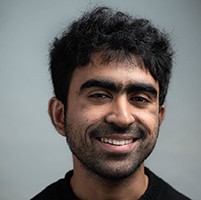We asked medical, research, and public health trainees to describe how multidisciplinary collaborations and approaches, or future opportunities for them, have impacted or will impact their training, research, or career.
After reading their essays, we were excited to learn more about our winners. Watch the interviews to find out who inspires them in their work, what they have been reading, and what they think the future holds for their field.
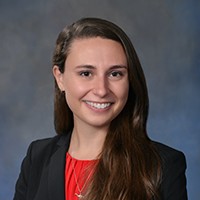
Kaelyn Cummins, Baylor College of Medicine
Essay Microbes, Medicine, and Astronauts: Reflections on a Collaborative Project
Who inspires you as a scientist?
Two great communicators inspire Kaelyn: Atul Gawande, author of Complications, and Peter Hotez, a medical doctor, researcher, and vaccine advocate.
What do you think the future of space health looks like?
Kaelyn predicts that the future of space health will be dominated by multidisciplinary approaches.
As you begin surgery residency, what do you predict the future holds for the field?
Kaelyn shares her hopes for collaboration between surgeons and other healthcare providers.
Who inspires you as a scientist?
Azmina finds inspiration in history, her co-workers, and her father.
What is the most interesting article you read recently?
Azmina has chosen a study that utilizes machine learning to monitor pregnant patients. The technology can potentially be used in low resource settings, remove racial bias, and improve maternal-fetal outcomes.
What do you think the future holds for your field?
Azmina shares her excitement at the prospect of using more technology in medicine and being part of a cultural shift that addresses disparities in health care using multidisciplinary approaches and techniques.
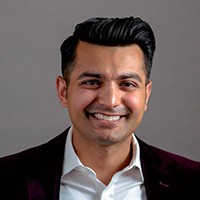
Hussain Lalani, Brigham and Women’s Hospital and Harvard Medical School
What is the most interesting article you read recently?
Pierri et al., 2022 presents a model that correlates geolocalization of vaccine misinformation on social media and subsequent vaccine hesitancy, which is directly related to the experience Hussain wrote about in his winning essay.
Who inspires you as a scientist?
As a first generation American, Hussain is especially inspired by two immigrant scientists: Katalin Karikó and Uwe Reinhardt.
What do you think the future holds for your field?
Hussain shares his hopes for the future of drug development and his concerns for drug pricing.
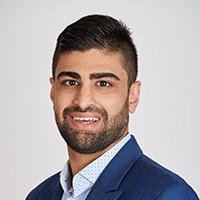
Rutvij Merchant, Icahn School of Medicine at Mount Sinai
Essay Pathways to Global Health Equity: More Seats, Fresh Perspectives
What is the most interesting article you read recently?
Rutvij discusses Poverty, Depression, and Anxiety: Causal Evidence and Mechanisms, a 2020 NBER paper by Ridley et al.
Who inspires you as a scientist?
Rutvij tells us about two people whose dedication to health equity and justice for all have inspired his career choices: Paul Farmer and Amartya Sen.
What do you think the future holds for your field?
Global health is changing and improving. Rutvij talks about what is most exciting and most worrying in the future of global health.
Kirti Nath, Harvard Medical School and MIT
Essay Puzzles
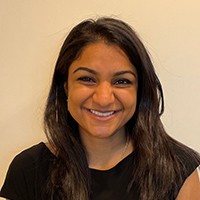
What is the most interesting article you read recently?
I recently read Erickson et al.’s paper Pregnancy enables antibody protection against intracellular infection. Since I started medical school, I have been fascinated by the biological processes that underlie adaptation to pregnancy. I believe that understanding these processes at a mechanistic level will improve maternal health outcomes and lead to new insights regarding metabolic stress, immune tolerance, and immunogenicity. This paper is a striking example of how investigating maternal immunology can lead to findings that can be applied outside of pregnancy. Here, the authors show that pregnancy can induce a glycosylation modification on antibodies specific for Listeria monocytogenes. This confers vertical protection against an intracellular pathogen in an antibody-dependent manner, challenging conventional wisdom in the field.
Who inspires you as a scientist?
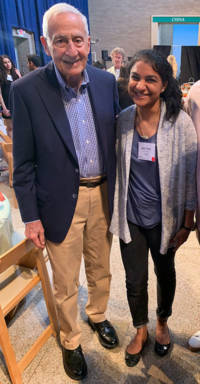
Roy Vagelos and Kirti Nath
I was fortunate enough to have met Dr. Roy Vagelos during college. I am inspired by his motivation to break down barriers that exist between academia and industry. I think this interdisciplinary vision is inextricably linked to his ability to lead people in delivering large-scale biomedical innovation. Learning from his example, I have incorporated many different fields of study into my formal education on the path toward becoming a physician-scientist. Dr. Vagelos’ legacy as an interdisciplinary scientist is his unique commitment to scientific discovery and drug development as well as social good. The next generation of physician-scientists will need to be involved in many facets of translational medicine, from the bench to the bedside, encompassing research, entrepreneurship, and clinical care.
What do you think the future holds for your field?
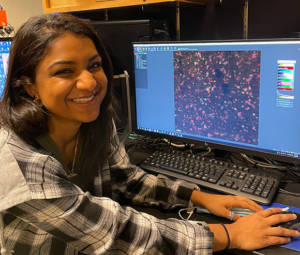
Kirti in the lab
Echoing my sentiments from above, I believe that the future of biomedical science is increasingly interdisciplinary. As technology scales and data-driven medicine becomes more of a reality, not only will the silos between biomedical research and other fields begin to blur, but so will the barriers between different fields within biomedicine, such as bioengineering, cell biology, and computer science. I am particularly interested in immunology. I work in a systems immunology lab at MIT, which combines principles in systems biology with classical immunology to answer questions about how immune responses are dramatically shifted due to subtle alterations in host biology. This is a particularly powerful approach because it allows us to understand how processes like autoimmunity might arise without dramatic loss-of-function mutations in the traditionally implicated genes. This interdisciplinary solution creates a model that might better represent how immune pathologies arise in the vast majority of patients. In the future, I believe that there will be increasing collaborations between investigators and professionals in different fields who together can develop new approaches to solve problems in biomedical research, clinical medicine, and healthcare delivery.
Who inspires you as a scientist?
Avik was inspired to leave patient care and go into public health because of the work of Paul Farmer, a medical anthropologist and physician, founder of Partners in Health.
Can you tell us about an article you read recently and how it relates to your work?
Banerjee et al., 2021 showed that the biggest barrier for people to enroll in health insurance is not money or information, but time. Avik discusses why this is a particularly exciting finding.
What do you think the future holds for your field?
Avik reflects on the promise of computational health economics applied to public health.

